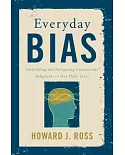In the early 1970s the authors spent their first seasons picking fruit and following migrant harvests around the country. Students in anthropology and communications, respectively, they were
initially stirred by a sense of romantic adventure. Soon they were drawn in by the migrant way of life and the wonderful people they met among the "Okie" fruit pickers. Over time what began as
a fascination grew into a commitment, and the authors became wedded to the cycles of seasonal fruit harvests, working and living as migrants.
While documenting their experiences as fruit pickers through writing and photographs, they further immersed themselves in the lives of migrants on both a personal and a political level. With
friends they formed the Migrant Workers of America (MWA), an idealistic attempt at a union that also functioned for the five years of its existence as a political advocacy group for migrant
concerns.
Changing economic conditions, especially in the West, eventually forced many of the author’s friends out of agriculture into other more sedentary occupations. Yet the story of their work and
lives - which has been constantly misrepresented by the press, government agencies, and well-meaning social organizations - still needed to be told in the Okie migrants’ own voices. Fruit
Fields in My Blood captures their proud spirit and ensures that their contribution to the history of labor in America will not be forgotten.
The experience of Okies in American agriculture reveals a richness of adaptation and a strength of character that remains a moving part of our national spirit. The dignity and strength under
adversity exemplified by the migrant fruit pickers were first seen in the novels of John Steinbeck and the photographs of Dorothea Lange and other Farm Security Administration photographers of
the 1930s. Fruit Fields in My Blood brilliantly updates that record and with great respect and sensitivity brings it to its historical conclusion.





















